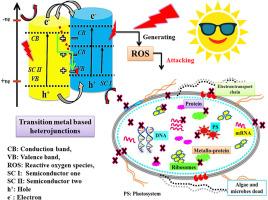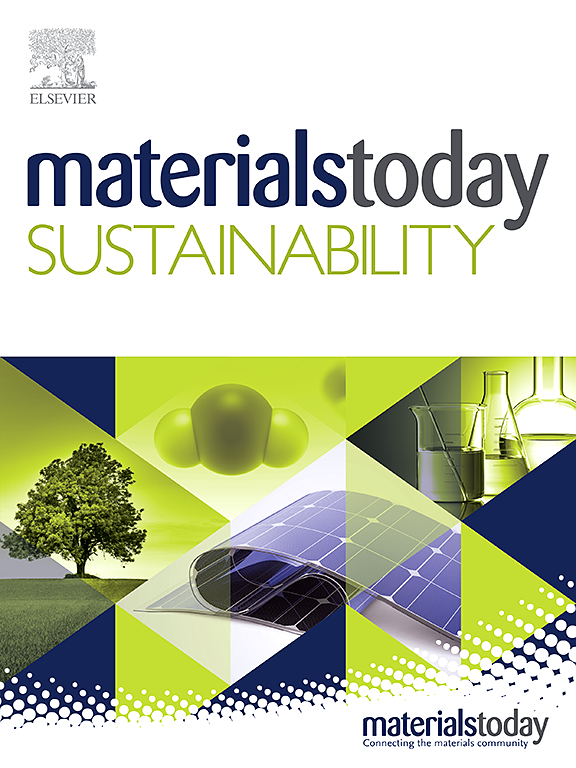Recent advances in transition metal-based photocatalytic heterojunctions for algal inhibition and water disinfection: A review
IF 7.1
3区 材料科学
Q1 GREEN & SUSTAINABLE SCIENCE & TECHNOLOGY
引用次数: 0
Abstract
Sustainable energy production and effective water pollution control are critical global priorities. Harmful algal blooms (HABs) and waterborne pathogens pose significant threats to water quality and public health, necessitating efficient and eco-friendly treatment methods. Transition metal-based photocatalytic heterojunctions offer promising solutions by leveraging the unique properties of transition metals to enhance photocatalytic efficiency. This review examines recent advances in these heterojunctions employed for algal inhibition and water disinfection, discussing various heterojunction type (including conventional, p-n, Z-scheme, S-scheme, and Schottky heterojunctions), and their synthesis methods. We elucidate the mechanisms involved, highlighting improved electron transfer, reduced recombination rates, and broadened light absorption. Recent studies on their effectiveness in inhibiting harmful algae and disinfecting water are also reviewed. Current challenges and future research directions to optimize these materials are identified. This is a first comprehensive overview focusing on the contributions of transition metals in photocatalytic heterojunctions for water treatment, aiming to support the development of sustainable technologies.

用于抑制藻类和水消毒的过渡金属基光催化异质结的最新进展:综述
可持续能源生产和有效的水污染控制是至关重要的全球优先事项。有害藻华(HAB)和水传播病原体对水质和公众健康构成重大威胁,因此需要高效、环保的处理方法。基于过渡金属的光催化异质结利用过渡金属的独特性质提高光催化效率,提供了前景广阔的解决方案。本综述探讨了这些用于抑制藻类和水消毒的异质结的最新进展,讨论了各种异质结类型(包括传统型、p-n 型、Z 型、S 型和肖特基型异质结)及其合成方法。我们阐明了其中的机理,重点介绍了改进电子传递、降低重组率和拓宽光吸收等方面。此外,我们还回顾了最近关于它们在抑制有害藻类和水消毒方面有效性的研究。还指出了优化这些材料的当前挑战和未来研究方向。这是首次全面综述过渡金属在水处理光催化异质结中的贡献,旨在支持可持续技术的发展。
本文章由计算机程序翻译,如有差异,请以英文原文为准。
求助全文
约1分钟内获得全文
求助全文
来源期刊

Materials Today Sustainability
Multiple-
CiteScore
5.80
自引率
6.40%
发文量
174
审稿时长
32 days
期刊介绍:
Materials Today Sustainability is a multi-disciplinary journal covering all aspects of sustainability through materials science.
With a rapidly increasing population with growing demands, materials science has emerged as a critical discipline toward protecting of the environment and ensuring the long term survival of future generations.
 求助内容:
求助内容: 应助结果提醒方式:
应助结果提醒方式:


